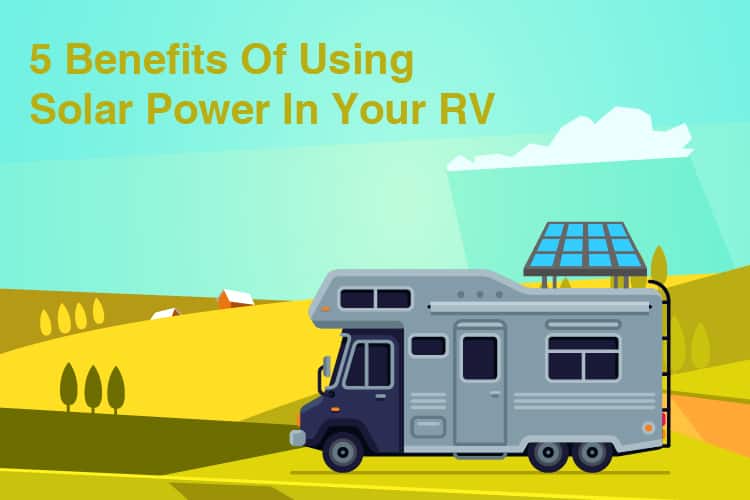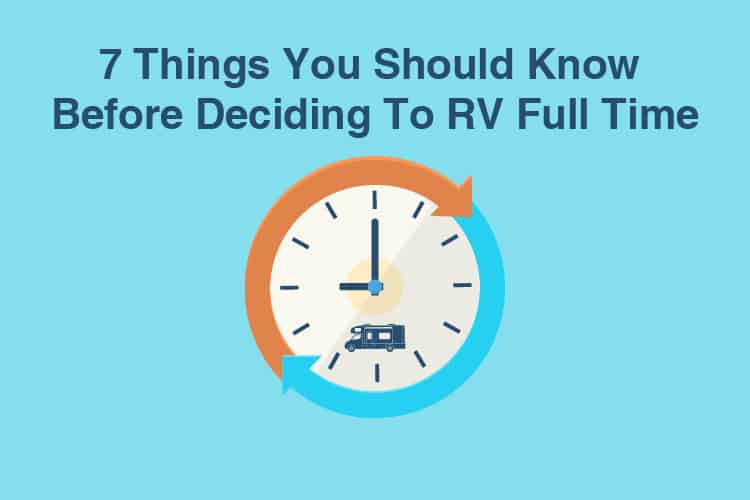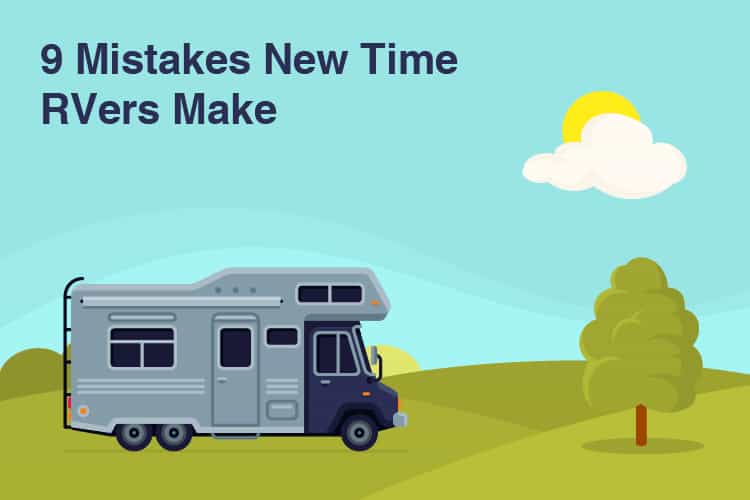If you’re trying to sell an RV, it can sometimes be rather difficult to figure out how much it is going to sell for. In fact, it can be difficult to know where to start when it comes to trying to figure it out.
We get it – there are a bunch of different kinds of RVs on the market. There are different models and makes, and they all have different things that make them unique in their own way. This can make it challenging to put a reasonable value on an RV.
On the one hand, you don’t want to undervalue your vehicle since this can mean that you are losing money on the vehicle. On the other hand, you also don’t want to overvalue the vehicle since you may struggle to sell it. So, what do you have to do to get a fair price for your RV?
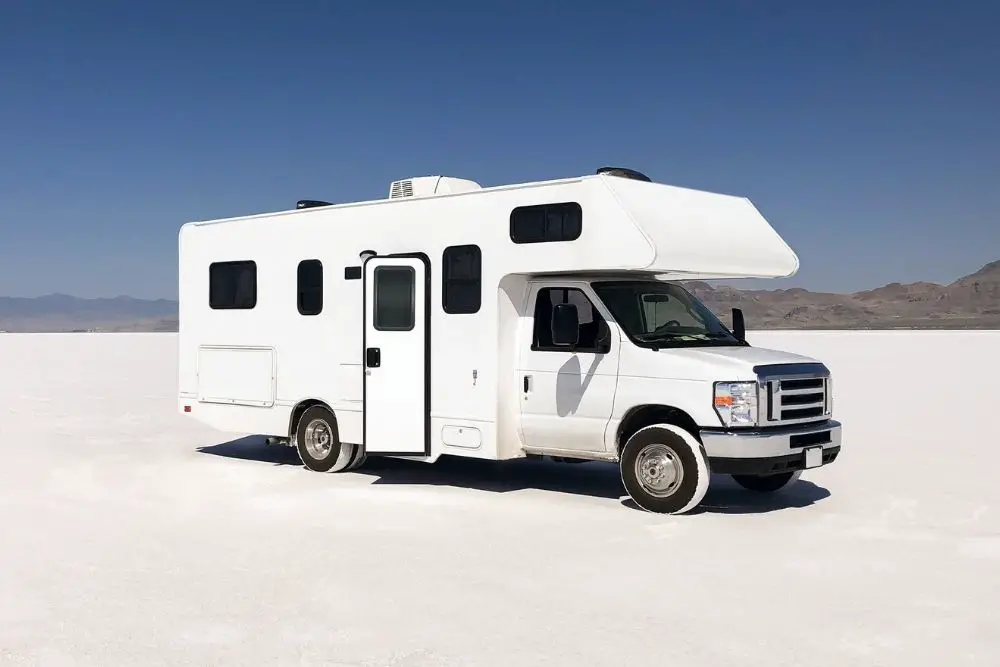
Well, today we’re going to make this whole process just a little bit less confusing. This will help you to figure out how much your RV is worth, so that you can put an acceptable price on it when you are trying to sell it.
Below, we’re going to discuss the market value of an RV and the reasons why you should know more about it. We’re also going to dive into the different tools that should be used in order to figure out the value, a couple of tips that you can use to negotiate the sale price, a couple of pros and cons of private sales versus dealership sales, and the ways that you can do an inspection before you come to a consensus about the deal cost.
Why Should I Know the Value of My RV?
Every vehicle owner should know the value of their trailer, camper, motorhome or fifth wheel. There are a number of reasons for this, including the following.
- You should know the value when you are selling an RV
- You should know it when buying an RV
- You will need to know it when you are trying to get insurance for your RV.
These different factors can have a huge effect on the overall value of the vehicle.
1. Buying and Selling an RV: It’s All About the Price Tag!
A lot of things can influence what you are comfortable with paying when it comes to buying an RV. Likewise, there are things that can influence whether you feel that a price is acceptable or not for your individual RV when you are selling.
It’s not a great idea to go into an RV superstore and paying the price tag on it when it has issues. It’s equally a bad idea to pay the asking price on a privately owned vehicle when they have an RV with problems.
Of course, it is very simple to get caught out and pay a lot more than a vehicle is worth when you don’t know how much it should usually cost on the market.
If you know a ballpark figure that your RV should cost, it can help you to figure out whether you are going to be overpaying for that vehicle. It can help you to negotiate the price much more easily if you still intend to go ahead with the purchase.
2. Insurance
An RV is an expensive investment. For this reason, having good insurance coverage is incredibly beneficial. It helps to cover your expenses if you need to replace the RV, whether it’s because it has been stolen or it has been in an accident.
In general, RV owners will put the purchase price as the value for any insurance claims. If you got the vehicle from a previous owner or you managed to get a real bargain though, this won’t be much use to you.
You’ll also need to provide evidence that the vehicle is worth more than the asking price to ensure that you’re covered in the event of a worst case scenario.
Now, the insurance costs can vary wildly. For instance, if you’re only going to be using the RV every now and again, you could probably just put it onto your car insurance policy and then go about your day.
Some people like to live in their RVs, however. If you intend to live in your RV every day, the insurance can be rather expensive, especially if you don’t have other vehicles. The administrative side of the insurance can get rather complicated in these scenarios.
If you are going to live in your RV all the time, then you’re only really going to need to have the RV in order to get from one place to another. There isn’t much of a need to have another car.
As such, you need to make sure that your insurance fully covers the cost of the vehicle, including repairs, staying in hotels, rental cars, potential towing or in some cases, the cost of replacing the entire vehicle.
Thankfully, this doesn’t need to be super stressful. There are a number of companies out there that will allow you to take out insurance on your RV if you are using it full time. This can give you a little bit of extra confidence if you want to do some sightseeing in it.
The only real issue that is likely to arise is that you may have a harder time getting insurance for older RV models. It can be hard to pinpoint the value, meaning that it’s also challenging to figure out the insurance.
There can also be some issues if you have made alterations to the vehicle that may change the price.
It’s also important to mention that if you have a newer, sleeker RV, you are going to need a lot more insurance coverage. As such, it’s important to ensure that you put the right value on the RV.
How To Get The Right Market Value for An RV
Finding the value of your RV can be quite the challenge, but there are thankfully a number of ways that you can figure it out.
First of all, you can look online or in a bookstore for RV price guides to help you to gauge the cost of the vehicle.
Another thing that you can do is look online for what other people are selling their similar vehicles at.
Finally, you can invest in a professional appraisal to get a truly accurate picture of how much your RV is worth.
It’s usually best to use one or even more of these various methods if you want to get the best value for your money. If you have additional data at your disposal then you can make the best decision about the value of your RV.
1. Pricing Guides
When RV owners are trying to figure out how much their vehicle is worth, the first thing that they usually do is look at RV price guides. They will usually give a rough price range of an RV model.
Some of them, however, will go much more in depth. The NADAGuides, for instance, will provide a valuation based on how much the RV has depreciated based on its MSRP.
Of course, the information in the guides doesn’t necessarily reflect your particular vehicle’s sale price. As such, the numbers may be significantly off the mark for your RV. It’s usually best to use a low estimated value in these guides when you are trying to work out the cost of your RV.
A lot of these guides will allow you to give the main information about your vehicle such as the age, mileage and features and these things can all influence the selling price.
The NADAGuide in specific will be able to give you pricing information for a range of different vehicles, such as travel trailers, fifth wheels, truck campers and motorhomes. Even better, the information spans over the last 15 years, so you’re sure to find your vehicle listed there.
You can find a range of other websites online that you can use for RV valuations too. For instance, PPL is very useful since they tend to add additional information based on the current sales prices of the RV in question.
Using this sort of information, in addition to other research, can help you to feel more confident in asking for a particular price when you are selling.
One thing that you will notice when you are looking through one of these guides is that the vehicle is more likely to depreciate at a higher rate during the first couple of years after you bought it. Realistically, you should anticipate that your RV will lose around 30% of its value immediately after you buy it and take it home.
When an RV is around 6 years old, it halves in value from what it was worth when you first bought it. The depreciation will then begin to slow down, but eventually it will stay at the value that it would be if you scrapped it.
You will also find that a vintage RV may sometimes have an increased value as the year goes on, especially if it’s in good shape. This is often the case for Airstream trailers.
2. Sales Information On The Internet
One way that you can find out the value of your RV is by looking online. If you do this, you can often find the real time sales prices for specific makes and models of RV.
For instance, if you look on a website such as eBay and look at the sold listings section, you can see how much certain RVs have recently sold for. This will help you to find the right sales price for your own vehicle. It will also show you the value based on the sale location.
This information is incredibly valuable, since it’s a good indication of how much a prospective buyer is currently willing to pay for your make and model of RV. Now, it’s important to mention that the sale location does tend to be influential too. For instance, if you are selling the RV in a location where they are in high demand, you are most likely going to get more money for the vehicle.
Another thing that you can do is look on an RV dealership website and see the sold listings. For instance, a website such as RV Trader or a big RV dealership can show you how much the vehicle has sold for in the past.
Another reason that this is helpful is because the RV websites will also show you things such as the amenities, the mileage and any upgrades, as these can have a huge impact on the sale value of the vehicle. You can compare these listings to your own vehicle to help you to figure out how much you can potentially get for it.
3. A Professional Appraisal
For the most accurate estimate on how much your RV is worth, it’s best to get a professional RV appraisal. The price of this can ultimately depend on the company that you are using for the appraisal, but it can cost anywhere from around $200 to thousands.
You will usually find that an RV mechanic that’s near to you may provide an RV appraisal service. For this, the mechanic will travel just a short way in order to take a look at the RV.
Alternatively, you can also bring the vehicle directly to their shop. The mechanic will then look at the camper, and assess the value based on the latest sales prices in the region and the overall condition of the vehicle.
There are also companies that exist for the sole purpose of providing appraisals for RVs. one example of this is a company such as RV Appraisals and Investigations of America. These companies will fly out an agent to look at your RV.
You may also need to send very detailed photos of both the inside and the outside of the vehicle. This can often make the fee much more expensive. Once this has been done, the agent then puts together all of the information and then it is compared to the sales data in your region in order to figure out how much it is worth.
A professional appraiser is pretty useful, since they don’t have any bias. Sellers and buyers are often biased, so it can be harder to get a comprehensive answer when you’re trying to reach a value. Instead, a professional will figure out a price based on the facts – the recent sales information and the overall condition of your vehicle.
This is the best choice if you need to figure out the value of a particularly high end RV or a motorhome. It can help you to get a good price for your vehicle, or it can help you to make sure that your insurance coverage is sufficient for the vehicle in question.
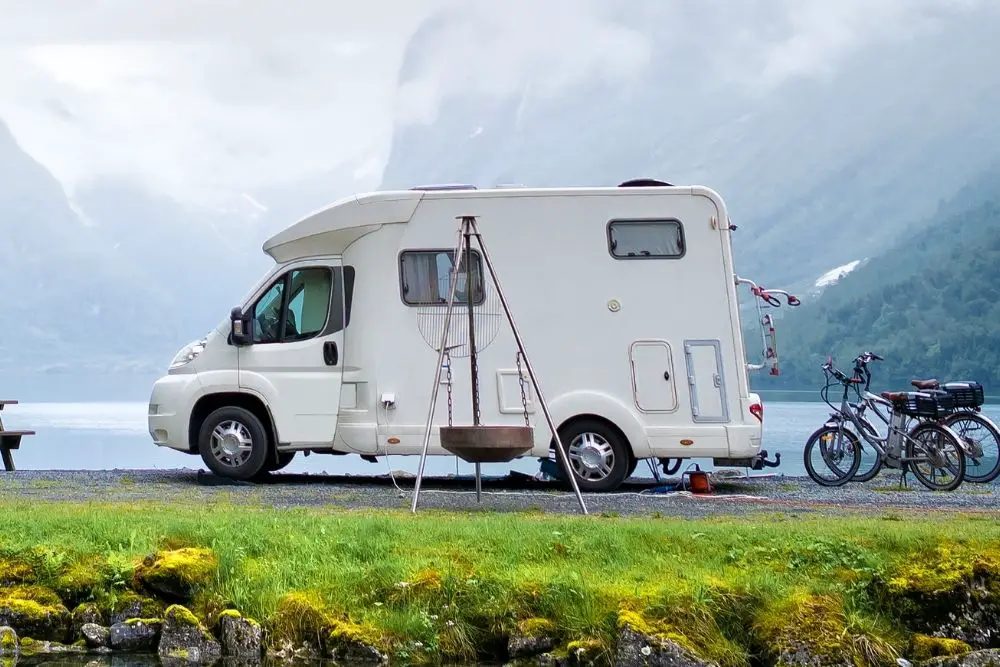
Things That Influence RV Sales Value
It goes without saying that if you regularly maintain your vehicle you are going to get a lot more money for it than if you let it fade into disrepair. There are a couple of things that can make the vehicle more valuable. For instance:
- It’s a larger vehicle
- Newer model age
- Painted exterior
- Interior configuration
- Upgrades, for instance to the water heater, solar panels, satellite TV and more
- Condition of the engine and tires
- Lower Mileage
In many respects, it’s a little like buying a car or a home. You’re obviously going to pay more money for a car or a home that’s in better condition and has better amenities. It also differs from a car or a house too. It’s usually a lot harder to market an RV.
A lot of people want to have a car or a house, but not everyone wants to have an RV. There’s a surplus of them on the market, and not as many people that want to buy them.
Okay, so if you’re buying from a dealer or a private seller, what do you need to look out for? Read on to find out.
Purchasing from a Dealer
If you’re in the market for a new RV, it’s only natural that an RV dealership is one of the first places that you check. Perhaps you decide to visit the dealership directly, or maybe you look online to see what they have in order to figure out what the dealer wants for the vehicle.
One piece of advice, though, is that you shouldn’t buy an RV without seeing it first. If you fall in love with an RV that you see online, don’t just hit that buy button straight away. Hop into your car and drive down to the dealership or the seller to see it.
It’s very easy to make things look better than they actually are in photos. That RV may not be nearly as good in person, especially when you take it out for the first time. You may notice some nasty issues such as leaking roofs or problematic electrical systems.
It is for reasons such as these that it’s important to make sure that you visit the dealership or the seller first. This will allow you to thoroughly take a look at the vehicle in question.
Not only that, but you can also assess the other vehicles in the dealership, since this will help you to figure out how the dealer values the different RVs that are there.
You will usually find that a dealership is full of a range of the latest models of RVs, but they will also have vehicles that have been used but are still suitable for sale.
It’s best not to rush into making a decision. When you go to the dealership for the first time it’s usually best to look around for a while and see what’s there.
After you have done this, you can then write down some information about the vehicle in question. This will allow you to do further research at home so that you can then get a more comprehensive idea about how much the vehicle is really worth.
Try to figure out what other buyers are paying in order to buy a camper of the same caliber. Consider any issues that other buyers have with the particular make and model in question. This will allow you to be in the best possible position for negotiating when you decide which vehicle you want to do.
It’s a good idea to ask the salesperson some information about the vehicle. It’s best not to waste the salesperson’s time, but if you have more information then you can make a better decision.
So, what about the pros and cons of a dealership? Here’s what you have to know.
THE PROS
- You have the option to finance the vehicle rather than buying it outright
- Lots of variety – both used and new RVs
- You can trade in your current camper to save money on the new RV
- Warranties
- Service departments
- Some dealerships deliver the RVs in the event that you don’t own a tow vehicle
- Salespeople who know what they are talking about
THE CONS
- Very expensive
- Salespeople can sometimes use crafty tactics to get a sale
- Busy service departments, meaning repairs can take quite some time
If you would prefer to go with an option that will give you some peace of mind in a good warranty, it’s usually much better to buy an RV from a dealership.
With that being said though, if you need to get the RV repaired then you should not expect great results from a dealership.
The service centers for RV dealerships are always very busy. Not only that, but not all of them have all of the parts needed in stock, so they may need to order them in. This process can take a very long time.
As RV fans ourselves, we’ve seen a lot of other RV owners scream in frustration because they are waiting for a service center to help them out. It’s especially problematic if you live in your RV, since you’re going to need to have more money to pay for a hotel room. It costs money and can cause an RV owner a lot of stress.
If you live in your RV, your key items are all going to be inside of it. It can be pretty anxiety inducing to know that all of those items are in the hands of a stranger for a prolonged amount of time.
It’s always good to hope that the vehicle has been completely inspected by the dealership by a technician, so the worst that you need to do is bring it in for some maintenance every now and again.
Negotiation
There are people out there that are masters in the art of negotiation. For many of us, however, negotiation is our worst nightmare.
Fear not, however – here are some tips on how to get the best deal for your prospective RV.
1. Fair Market Values
Make sure that you know your numbers! You should have the data that you need with you on hand so that you can counter them when a dealer tries to offer an unfair deal. This alone can save you a significant amount of money.
2. Beware of Sales Tactics
Before you start negotiating, it’s always a good idea to get your bottom line on the price.
For instance, some salespeople will overvalue the vehicle that you have traded in as a way to distract you from the price of the new vehicle. For this reason, it’s good to know how much it’s worth in advance since this will help you to stand your ground during negotiation.
A salesperson may also try to sell you on the low monthly financing payments. They will usually fail to mention that these payments can run for a long time, however. These are all sneaky sales tactics that a dealership will make to get you to pay more.
3. Buy During the Off Season
It’s simple. If something is currently in demand, the prices are going to be higher. For that reason, it’s best to buy your RV during the off season to save money.
Ideally, hunt for your RV during the later summer months and in the mid winter. During the early summer, spring and fall, RV dealerships are very busy and as such they may hike their prices to match the demand.
Purchasing Privately
Want to get the best possible deals for your hard earned cash? Go straight to a private seller.
A private seller is much more motivated to sell their vehicle in many cases. Perhaps they want to avoid paying for more storage fees, or maybe they just want to buy a new camper. There are a wide range of benefits in purchasing from a private seller.
THE PROS
- The process is fast
- More information about the vehicle in question in many cases
- Not as expensive
- The inspection is much easier
THE CONS
- It’s sold as seen – you won’t get servicing with it
- It’s easy for someone to lie about problems
- You’ll need to pay up front – no financing available
In most cases, a seller will be honest with you about any potential issues. They may even tell you different ways that you can deal with them.
If a seller tells you that there aren’t any problems with the vehicle, you should doubt this. Every vehicle has issues, so it’s best to insist that a seller is candid about the vehicle.
In addition to these things, you will have a lot more time to inspect a vehicle sold privately. You are going to need to pay up front, however.
Negotiation
It’s always best to have as much information as possible right off the bat. This can help you to get the best value for your money, and helps you to negotiate. Also consider the season that you are buying in. If it’s the busy season then many sellers may turn down lower offers.
You will also be able to offer less if you have noticed issues that will require repair. If you bring the seller legitimate reasons for a price drop, they will be more likely to bargain with you.
Inspection Tips
The very best way to know how much an individual vehicle is worth is to thoroughly inspect it. You can either do this yourself or you can get a professional to do it for you.
You can look online for a checklist for the inspection to help you out. You should also bring some gear with you for the inspection, such as a moisture meter, a small flashlight and an electrical receptacle tester. They can help you to look for defects.
Make sure that you pay extra attention to things like the window seals, the roof, rust on the undercarriage and the date on the tires. If there are issues then the value will likely drop.
Final Thoughts
Knowing the value of an RV is essential if you want to get a good deal, both if you are buying or selling. It can also be vital for getting coverage for insurance. When you are fully informed, you can be sure that you will get the best value for your money.


